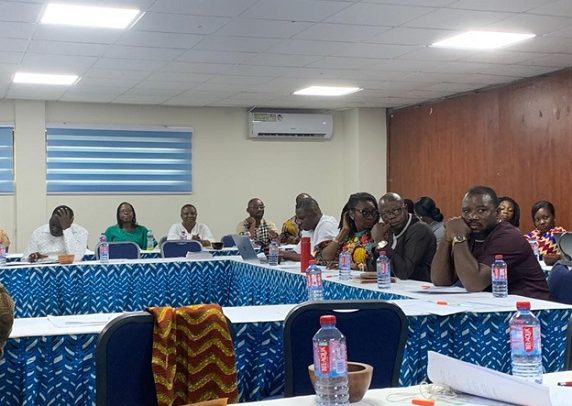Stakeholders at the review meeting
Civil Society Organisations, government agencies and disability rights groups have participated in a day’s workshop to review the Employment Equity Policy (EEP) expected to propose measures to address inequalities with regards to disabled persons in the country’s employment sector.
The workshop, organised by women-led organizations – Planned Parenthood Association of Ghana (PPAG), Africa Centre for Human Rights and Sustainable Development (AfCHuRSD) and Women In Need (WIN) forms part of the Dutch Embassy funded Promoting Equal Rights for Women and Girls with Disabilities (PERD) Project.
The policy has sections which include the provision of an enabling environment for fair recruitment process, and the provision of aids for persons with disability at the workplace like rams as well as fair remuneration and equal opportunity for promotion and growth.
AfCHuRSD CEO, Bernice Naah, said the consortium identified as one of the project activities an issue with employment for persons with disabilities within both the formal and informal sector.
She noted that the existing National Employment Policy does not adequately address the issues of persons with disabilities hence the forum for the stakeholders to engage and agree on what exactly works for them.
“We hope that by the end of today’s session we will have some timelines and road maps to move forward,” she said. “We expect that there will be equity in the employment of persons with disabilities in both the public and private sector and employers must make provisions to ensure that they are functional within the environment.”
Director Policy Planning, Monitoring and Evaluation (PPME) at the Ministry of Employment and Labour Relations (MELR), Gloria Bortele Noi, expressed satisfaction at the level of engagement indicating that the policy will feed into the overall review of the National Employment policy which will soon undergo review.
She explained that once the EEP was finalized the ministry would forward it to the Attorneys General’s office for advice and depending on the outcome, use it as a standalone policy or part of the broader National Employment Policy.
President of the center for Employment of Persons with Disabilities, Alexander Kojo Tetteh, was of the view that a an all inclusive policy would help place the spotlight on the needs of persons with disabilities.
This, he said, was due to past experience in policy implementation where funding for specific aspects are inadequate.
“This is the motivation to ensure that we do not have a separate thing for disabled people but we have to ensure that the current existing policy caters for persons with disabilities,” he said.
By Jamila Akweley Okertchiri


